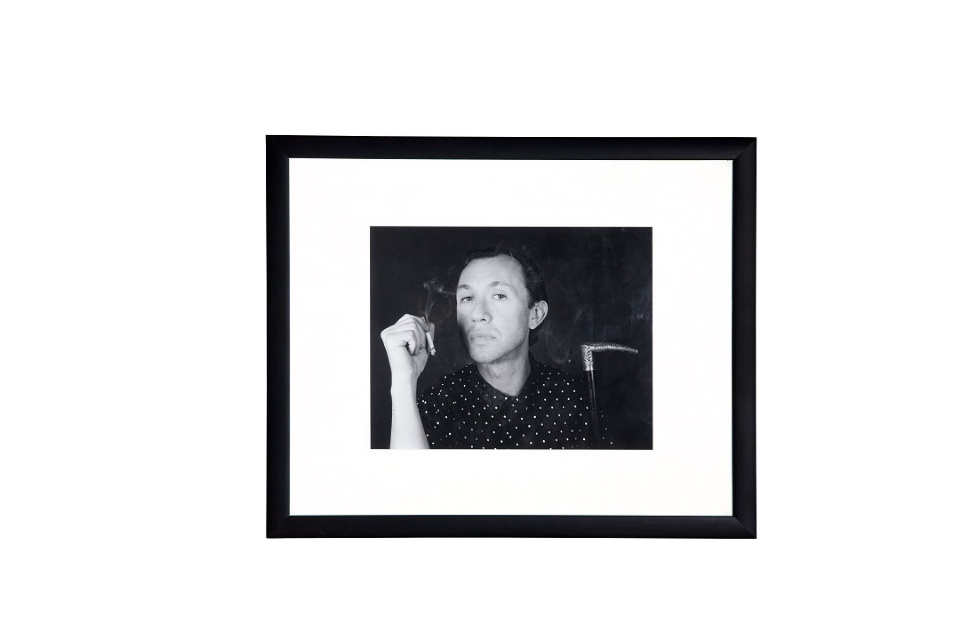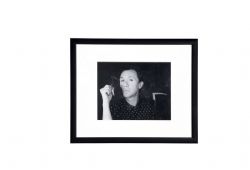Last year internationally acclaimed artist John A. Schweitzer donated 60 works of art to his alma mater, Western University in London, Ontario. Western, which has been collecting Schweitzer’s work since the 1990s, now holds the largest collection of the collagist’s oeuvres. Schweitzer, 69, says this philanthropic gesture was his way of giving back.
“Western played a formative role in my career. With ambitions to be a writer, I took a summer course in visual art which changed my life. I soon realized that I could incorporate my literary interests into the visual art experience,” says Schweitzer.After graduation, the Simcoe, Ontario native ventured abroad before ultimately settling in Montreal. In 1984, he opened the Galerie John A. Schweitzer which featured both Canadian and international art. As a gallerist, he was making a name for himself. But after 10 years of exhibiting the work of artists like Haring, Mapplethorpe, and Warhol, Schweitzer decided to take a major leap of faith following a conversation with his mentor and “spiritual father”, artist Robert Motherwell.“In 1989 I met the Greenwich-based expressionist (Motherwell) in Provincetown, walking on the beach near his summer house. ‘You are a visual artist, John’ he said to me upon viewing my work. So, with his endorsement, I closed my gallery in 1994 despite its flourishing. And at the ripe age of 40, I decided to pursue my art full time, and never looked back,” he explains.Since that seaside epiphany, Schweitzer has produced 15 protean series in a style that is entirely his own. His visual language may be attributed to an ocular condition he lives with called antimetropia. “I’m long-sighted in one eye and short-sighted in the other — which balances my eyesight. And so, my work is truly a manifestation of my gaze,” Schweitzer reveals.Organized in thematic series, Schweitzer's subject matter over the years has ranged from Virgil's Aeneid in Sunt Lacrimae Rerum (1991) to 9/11 terrorism in Fresh Kills: XXIV Elegies (2003). His contributions to the world of collage have earned him accolades such as the Queen Elizabeth II Golden Jubilee Medal in 2002, and an induction into the Royal Canadian Academy of Arts (RCA) in 2003.Schweitzer, who describes himself as someone “always focused on the future” is currently in the production stage of his latest series, Nero, which explores the properties of the Italian word for black and the life of the emperor of the same name. As an admirer of ancient Rome, Schweitzer’s Nero merges historical themes with the Coronavirus pandemic, exploring notions of evil and the darkness before the light. This latest series of 30 collages will be exhibited in 2022.“Lux Perpetua!” Schweitzer proclaims.
 In The Latest Issue:Latest Issue:
In The Latest Issue:Latest Issue:
- A Bittersweet Farewell
- The new Laval Aquatic Co...
- The End of an Era:
Articles
Calendar
Virtual- ANNUAL TEACHER APPRECIATION CONTEST
- APPUI LAVAL
- ARTS & CULTURE
- CAMPS
- CAR GUIDE
- CCIL
- CENTENNIAL ACADEMY
- CHARITY FUNDRAISING
- CITYTV
- COSMODÔME
- COMMUNITY CONNECTIONS
- COVER STORY
- DINA DIMITRATOS
- ÉCOLE SUPÉRIEURE DE BALLET DU QUÉBEC
- EDITORIALS
- ÉDUCALOI
- EDUCATION
- EMPLOYMENT & ENTREPRENEURSHIP
- FÊTE DE LA FAMILLE
- FÊTE DU QUARTIER SAINT-BRUNO
- FAMILIES
- FESTIVAL LAVAL LAUGHS
- FÊTE DE QUARTIER VAL-DES-BRISES
- FINANCES
- GLI CUMBARE
- GROUPE RENO-EXPERT
- HEALTH & WELL-BEING
- 30 MINUTE HIT
- ANXIETY
- CHILDREN`S HEALTH & WELLNESS
- CLOSE AID
- DENTAL WELLNESS
- EXTREME EVOLUTION SPORTS CENTRE
- FONDATION CITÉ DE LA SANTÉ
- GENERAL
- HEARING HEALTH
- MESSAGES FROM THE HEALTH AGENCY OF CANADA
- MENTAL HEALTH
- SEXUALITY
- SOCIAL INTEGRATION
- SPECIAL NEEDS
- TEENS
- THE NUTRITION CORNER
- THE NUTRITION CORNER - RECIPES
- VACATION DESTINATION
- WOMEN'S FITNESS
- WOMEN'S HEALTH
- HILTON MONTREAL/LAVAL
- HOME & GARDEN
- INTERNATIONAL WOMEN'S DAY
- JAGUAR LAVAL
- LAVAL À VÉLO
- LAVAL FAMILIES TV SHOW
- LAVAL FAMILIES MAGAZINE CARES
- LAVAL URBAN IN NATURE
- LE PARCOURS DES HÉROS
- LES PETITS GOURMETS DANS MA COUR
- LEON'S FURNITURE
- LEONARDO DA VINCI CENTRE
- LFM PREMIERES
- LIFE BALANCE
- M.P. PROFILE
- MISS EDGAR'S AND MISS CRAMP'S SCHOOL
- MISSING CHILDREN'S NETWORK
- NETFOLIE
- NORTH STAR ACADEMY LAVAL
- OUTFRONT MEDIA
- PASSION SOCCER
- PARC DE LA RIVIÈRE-DES-MILLE-ÎLES
- PÂTISSERIE ST-MARTIN
- PIZZERIA LÌOLÀ
- PLACE BELL
- PORTRAITS OF YOUR MNA'S
- ROCKET DE LAVAL
- SACRED HEART SCHOOL
- SCOTIA BANK
- SHERATON LAVAL HOTEL
- SOCIÉTÉ ALZHEIMER LAVAL
- STATION 55
- STL
- SUBARU DE LAVAL
- TECHNOLOGY
- TEDXLAVAL
- TODAY`S LAURENTIANS AND LANAUDIÈRE
- TODAY`S LAVAL
- WARNER MUSIC
- THIS ISSUE
- MOST RECENT
Magazine
Articles ~e 105,7 Rythme FM 4 chemins Annual Teacher Appreciation Contest Appui Laval Arts & Culture Ballet Eddy Toussaint Camps THIS ISSUE MORE...
CONTESTS Enter our contests
CONTESTS Enter our contests
CALENDAR
Events & Activities
COMMUNITY Posts Events
PUBLICATIONS Our Magazine Family Resource Directory
LFM BUSINESS NETWORK Learn more
COUPONS Click to save!
COMMUNITY Posts Events
PUBLICATIONS Our Magazine Family Resource Directory
LFM BUSINESS NETWORK Learn more
COUPONS Click to save!
SUBSCRIPTIONS
Subscribe to the magazine
Un-Subscribe
E-NEWSLETTER Subscribe to our E-newsletter Un-Subscribe
WRITE FOR US Guidelines & Submissions
POLLS Vote today!
E-NEWSLETTER Subscribe to our E-newsletter Un-Subscribe
WRITE FOR US Guidelines & Submissions
POLLS Vote today!
ADVERTISERS
How to & Media guide
Pay your LFM invoice
SUGGESTIONS Reader's Survey Suggest a Listing
LFM About Us Our Mission Giving Back Contact Us
SUGGESTIONS Reader's Survey Suggest a Listing
LFM About Us Our Mission Giving Back Contact Us
 PICK-UP LOCATIONS
Get a copy of LFM!
PICK-UP LOCATIONS
Get a copy of LFM!
TERMS & CONDITIONS Privacy | Terms
ISSN (ONLINE) 2291-1677
ISSN (PRINT) 2291-1677
Website by ZENxDESIGN



 BY:
BY: 
Tweet
Share